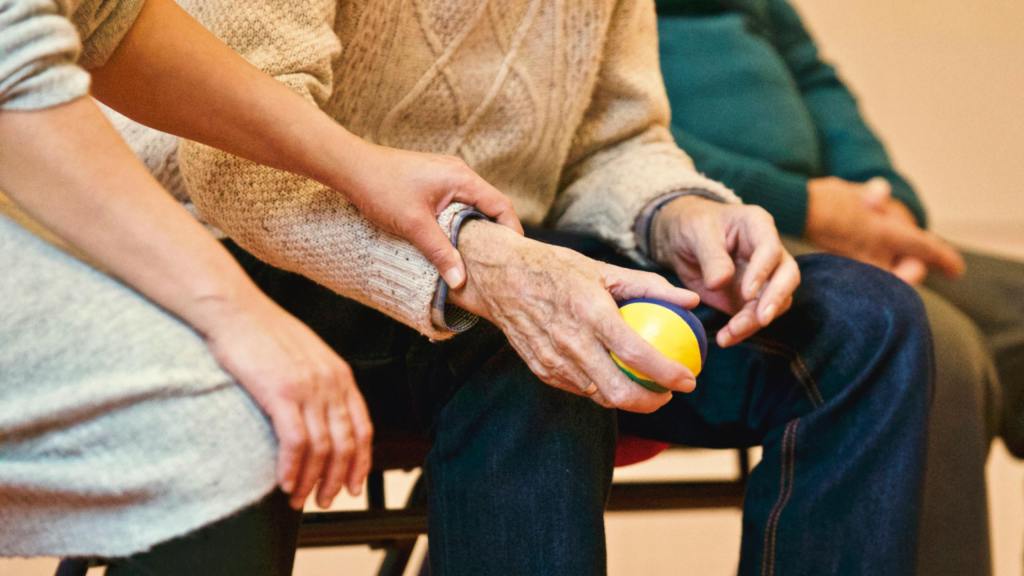
Managing Dementia Sleep Problems
Common Dementia Sleep Problems
No one knows for sure why sleep problems and confusion at night occur in dementia patients. All that’s known is Alzheimer’s affects the brain, causing cognitive problems. Studies indicate that up to 20 percent of people with Alzheimer’s experience sundowning, which is increased feelings of anxiety and confusion late in the day. These individuals also frequently experience restlessness and trouble sleeping, which can contribute to increased behavioral problems. Sleep apnea is another highly diagnosed condition experienced by dementia patients. Professionals believe that sleep apnea is related to severe dementia. It’s been found that Alzheimer’s patients experience several respiratory events for every hour of sleep, caused by sleep apnea. Things that could exacerbate sundowning and sleep problems in patients include:
- Both mental and physical exhaustion at the end of the day
- Biological issues mixing up night and day
- Disorientation often caused by an inability to distinguish dreams and nightmares from reality
- Confusion and fear caused by reduced lighting and misinterpreted shadows
- Normal sleep changes that occur with aging
Medical conditions and certain medications also affect patients. A lot of adults experience sleep difficulties caused by another issue. Taking a closer look at medications and other health problems could reveal more about the sleep issues.
Tips for Managing Sleep Issues in Dementia Patients
Fortunately, there are several lifestyle changes that can promote healthier sleep. Encourage your loved one to start implementing these habits to help them overcome difficulties with sleeping.
Adopt a Consistent Sleep Schedule
Maintaining a consistent sleep schedule with a regular wake-up time can greatly improve circadian rhythm, helping dementia patients fall asleep faster and have a higher quality of sleep. It’s best to go to bed at the same time every night too, although the time you wake up has a bigger impact on overall sleep quality. Adapting to a new sleep schedule can be difficult, especially for those with dementia. With the use of alarms and assistance from caregivers, getting out of bed at the right time each day can make a big difference in their ability to fall asleep more readily at night.
Eat a Healthy Diet
A nutritious, well-balanced diet is important for just about everyone, including dementia patients and seniors in general. It’s important not to eat large meals too close to bedtime, and anything eaten after 6:00 PM should be healthy, meaning low in sugar and carbs. There are certain foods you can eat around bedtime that actually help you sleep. For example, calcium is known to help the body produce more melatonin, a natural hormone that induces sleepiness. So, consider having a glass of milk before bed. Another food to consider eating is oatmeal. It’s also crucial to avoid tobacco, alcohol, caffeine, and high-fat meals at night. These can make it nearly impossible to fall asleep. If you’re used to having a nighttime tea, consider something with zero caffeine.
Engage in More Physical Activity
Many seniors have a hard time exercising due to mobility issues. However, it’s even more important for them to do what they can, as aging causes the body to lose bone and muscle. Also, exercising during the day can help you to more easily fall asleep when the time comes. Exercise doesn’t have to be too rigorous – even a light walk will do the trick. Walk as often as possible during the day and squeeze in some light weightlifting if you can manage it. Before bed, do a few stretches.
Create an Environment That is Conducive to Sleep
Make the bedroom a place made just for sleeping. Use the room only for sleeping – if you start to play or work in there, your mind won’t automatically shift to sleep mode when you’re in bed. Your bed should be used for sleeping only. Keep your bedroom as dark and quiet as possible when you should be sleeping and adjust the temperature to something you like. If the bed is uncomfortable, find the problem and fix it as best as you can. There are mattress pads and special pillows available for all types of sleepers. It’s just a matter of finding what works for you or your loved one.
Consider Light Therapy During the Day
Exposure to light during the day, typically in the form of the sun, can help keep the circadian rhythm on track. When the sun sets, the body typically knows it’s almost time for bed. If you’re unable to get the patient outside during the day, light therapy has been found to be effective for some people. This involves using special lamps outfitted to emulate sunlight. Studies indicate that light therapy works best to alleviate sleep issues for those with mild to moderate dementia. Problems with sleeping are common among those with dementia or Alzheimer’s disease, but implementing a consistent evening routine and other habits can support healthy sleep. If lifestyle changes don’t ease your loved one’s sleep problems, talk with their healthcare provider to discuss other solutions.
More insights like this:
-

Delirium vs. Dementia: Causes, Symptoms, Treatments, and Preventative Measures
Read more: Delirium vs. Dementia: Causes, Symptoms, Treatments, and Preventative Measures5 Key Things Family Caregivers Need to Know About Delirium and Dementia Onset and Course Are Key Clues That Caregivers Should Watch Closely Delirium develops suddenly (hours or days) and often fluctuates; dementia progresses gradually over months or years. Acute changes in thinking or attention should trigger urgent medical evaluation. Delirium and Dementia…
-

What Caregivers Should Know About Early-Onset Alzheimer’s
Read more: What Caregivers Should Know About Early-Onset Alzheimer’sSymptoms, Stigma, Diagnosis, and Treatment Early-onset Alzheimer’s disease, also known as younger-onset, is the development of Alzheimer’s symptoms between the ages of 30 and 65. A diagnosis is relatively rare at a younger age, and while over 6 million people in the United States are living with Alzheimer’s disease, the true prevalence of early-onset is uncertain.…
-

15 Tips on Transitioning a Loved One to Memory, Dementia, or Alzheimer’s Care
Read more: 15 Tips on Transitioning a Loved One to Memory, Dementia, or Alzheimer’s CareAs a part of your journey caring for someone with Alzheimer’s or another form of dementia, there may come a time when the effects of the disease become too much for a caregiver to handle, and one must seek alternative care options. When deciding the right time to transition your loved one to…